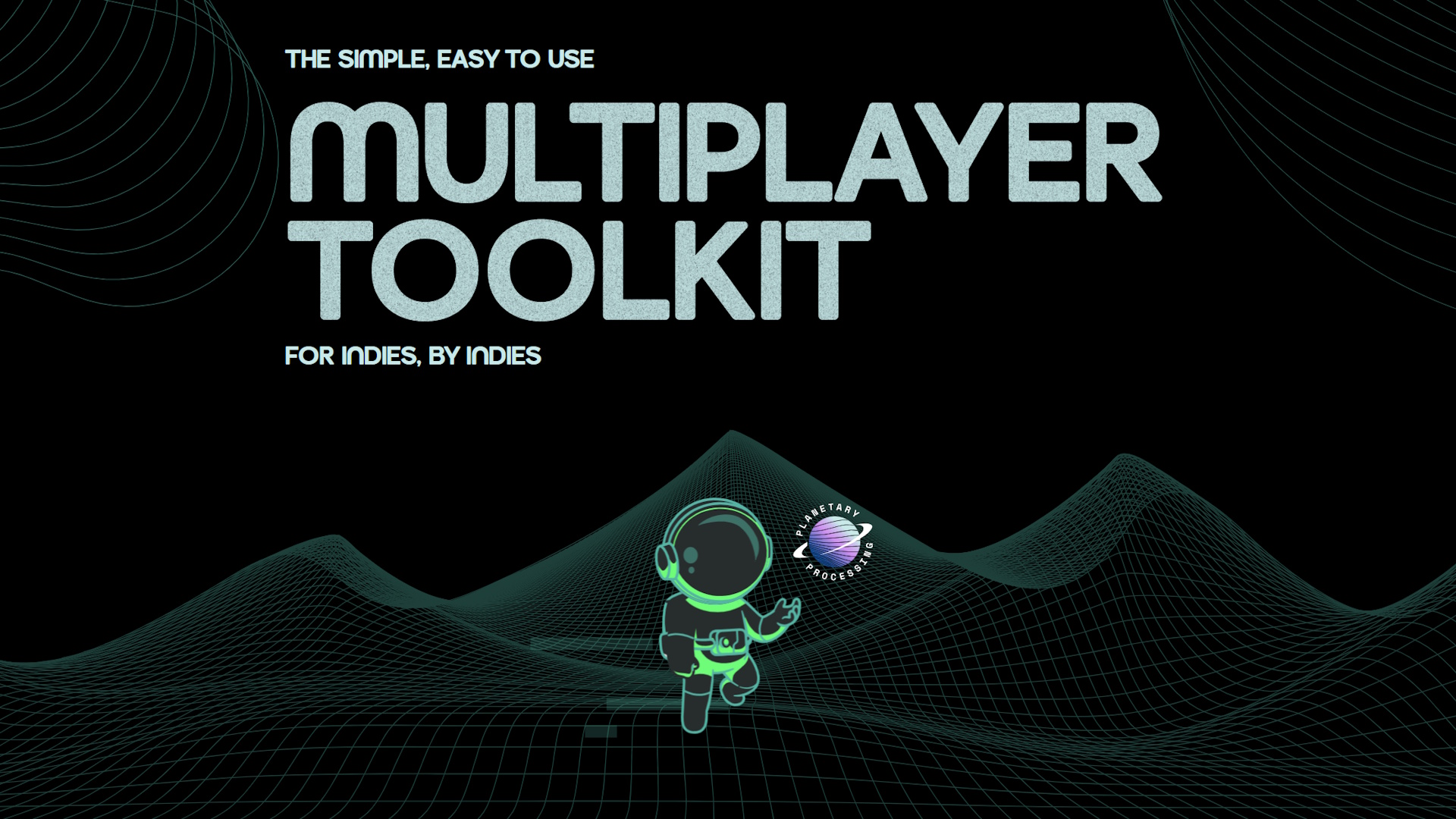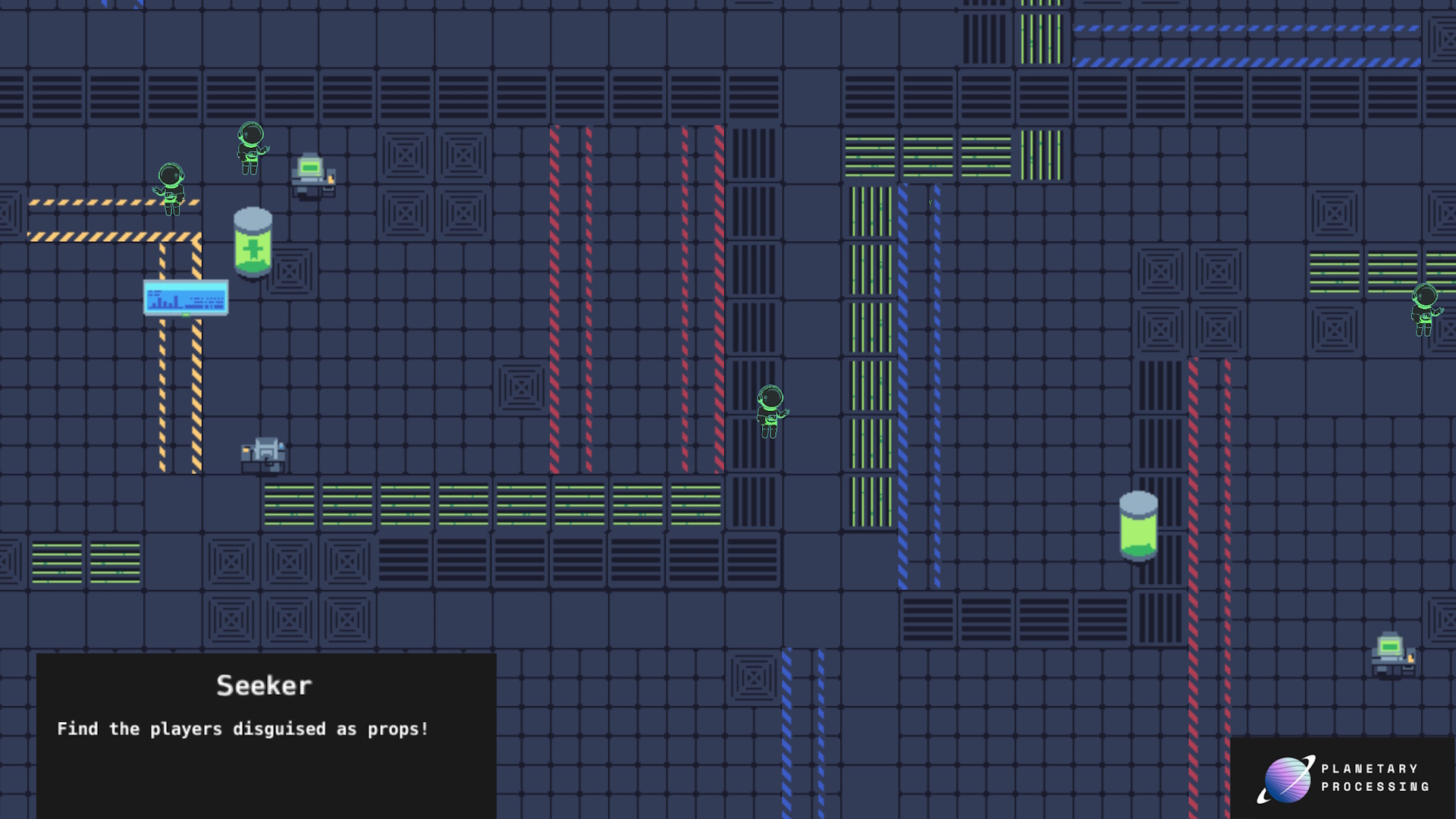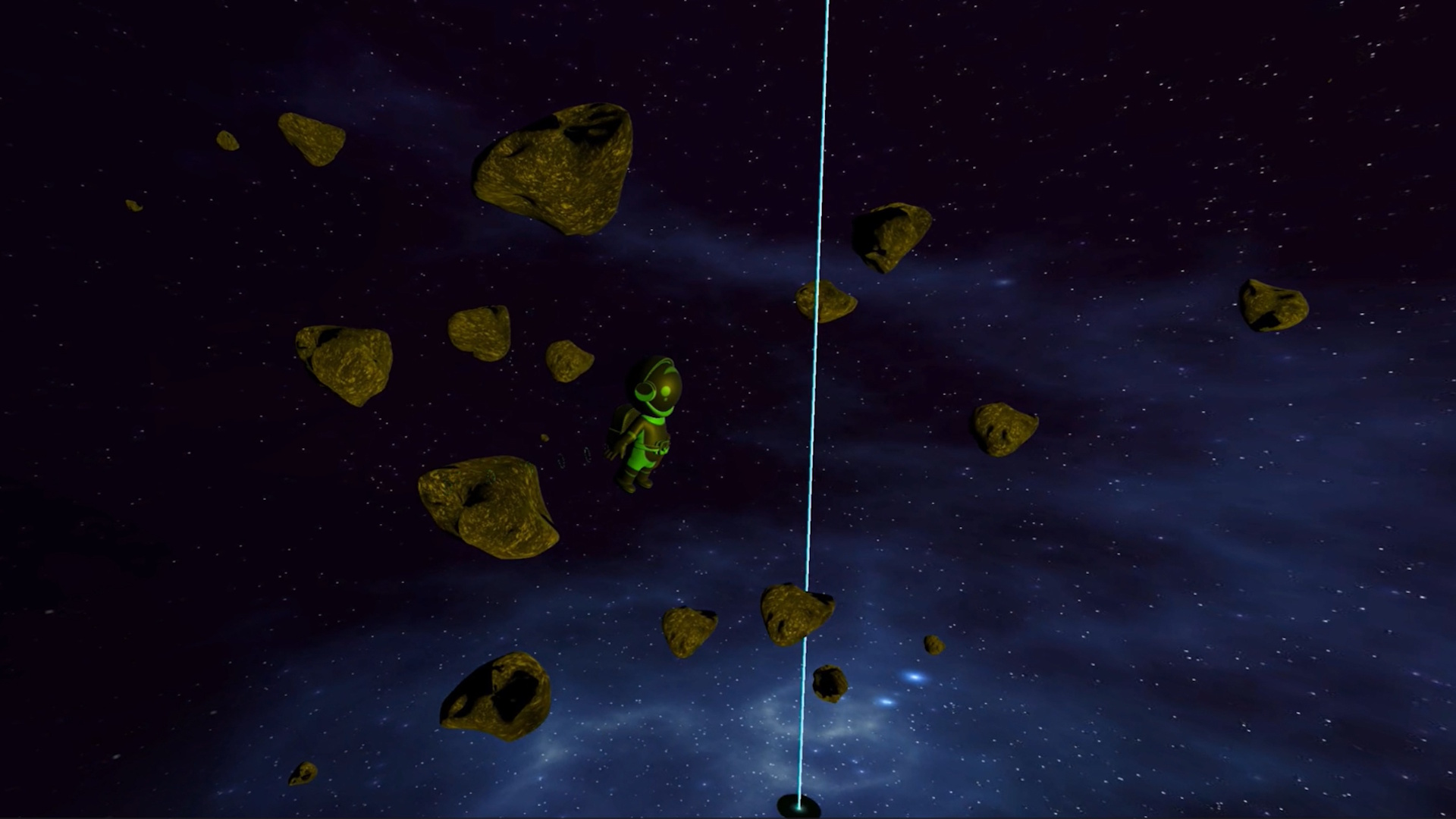Get your game online-ready in hours with Planetary Processing

Game development is a process that's as beautiful as it is painstaking. For every moment of inspired design, thoughtfully crafted level, or clever solution to a programming puzzle that once seemed unsolvable, there's bug fixing, data entry, and other less glamorous—but equally essential—parts of the craft.
And if you're taking your game online—whether it's a small-scale project with multiplayer co-op or a full-on MMO—then the challenge increases further still, as you need to get into the trenches with server management, multiplayer networking, and all that other stuff that takes you away from more fun and creative parts of development.
That's where Planetary Processing comes in, a tool that provides the infrastructure for you to be able to host online games while keeping your workloads low. There's no need for writing up dreary netcode, because whether you're working with Unity, Unreal Engine, Godot, or many others, the tool has plugins that let you integrate multiplayer functionality without jumping through all the hoops. Just install whichever ready-made plugin you need, and you're good to start getting your game online-ready.

The game logic is handled server-side, so as a developer you just write some Lua scripts, and let the tool take care of the online technicalities such as synchronising game state and player connection handling. Within just a few hours of focused fiddling in the accessible interface, you could well have a multiplayer prototype for your game up and running!
Planetary Processing has become super-scalable too. Addressing feedback that the tool was too heavily oriented around MMOs, the devs released the 'Dimensions' update a few months ago. This makes it easier for developers to create instances within their game worlds (such as dungeons and special encounters), as well as online games that rely on private sessions rather than just larger scale games built around public sessions and big servers (which, of course, PP can do too).
The devs understand that development isn't cheap, especially if you're an indie just starting out. That's why the basic tier of Planetary Processing is free. This will get you full access to the tool's SDKs and online dashboard, which gives you an easy way to monitor and update your games in real-time. You'll be limited to 10 players and 10 dimensions per game, but for plenty of people that will be enough while still developing their game. You'll also get to benefit from the currently beta version of its new physics engine, which ensures entities in your online worlds collide and interact in a realistic way.

Level up to the premium tier however, and you'll get unlimited server sizes and world sizes, multi-user access, and chunkloader entities that keep the game world loaded with no players around (important for those persistent online worlds). You'll get access to the in-progress HTTP API feature, which will let you perform various operations such as managing player accounts, and stopping and starting game instances using standard HTTP methods. All this comes out much cheaper than self-hosting, and you can even use PP's pricing calculator to work out your monthly costs based on different server loads for your game.
So if you're ready to take your game online with the path of least resistance, head over to the official Planetary Processing site to see which version suits your project. You can also keep up with the latest updates via Instagram, X,and LinkedIn, and join the community on Discord where you can speak with fellow game devs, exchange ideas, and get help with using the tool. Finally, on the topic of help, head over to the Planetary Processing YouTube channel for tutorials, interviews, and more.
The gateway to take your game online is here, all that's left for you to do is step through it.
The biggest gaming news, reviews and hardware deals
Keep up to date with the most important stories and the best deals, as picked by the PC Gamer team.

